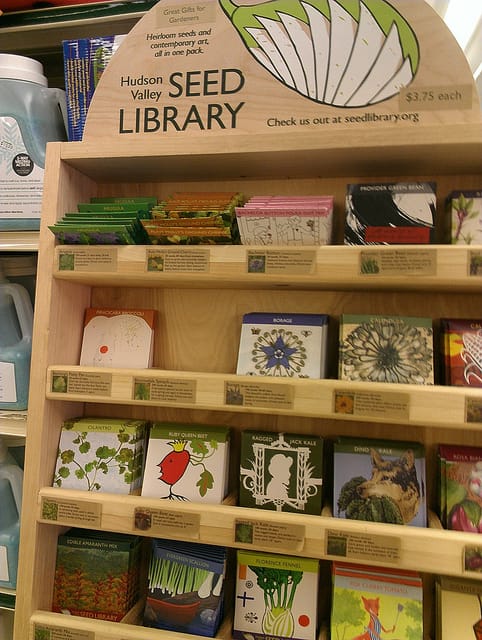 |
After Pennsylvania’s Department of Agriculture adopted a policy restricting the Simpson Seed Library in Mechanicsburg, PA from sharing locally saved seed, several states have followed suit, threatening the continued existence of seed libraries. Seed laws exist to regulate entities that sell or commercially exchange seeds.
A seed library is a noncommercial nonprofit, cooperative, or governmental organization that donates seed and receives donations of seed, especially by encouraging members to learn about seed saving and donate seeds to the library. Donation of seed is not required in a seed library, so the sharing of seeds does not even rise to the level of barter or exchange, let alone sell. Seed libraries are far different in nature and scale than commercial seed companies and need to be appropriately recognized under the law to protect their ability to continue freely sharing seeds in communities across the country.
You can sign the following petition at this website: http://legalizeseeds.org/
To: Directors of all 50 U.S. State Departments of Agriculture
Over 300 nonprofit seed libraries in the U.S. might be regulated out of existence due to misapplication of seed laws by several state departments of agriculture.
I believe seed libraries are key to a more secure and resilient food system. Seed libraries provide free access to seeds, protect the diversity of our food sources, and educate community members about growing food and saving seed.
I support citizens’ freedom to share locally saved seed with their neighbors. Laws designed to regulate commercial sales of seed should not be applied to noncommercial donations of seed or to seed libraries.
Therefore, I ask that you (1) issue a public statement declaring that your state’s Department of Agriculture’s seed enforcement policy does not include seed libraries, and (2) begin implementing regulations formalizing this policy.
Sincerely,
[Your name]

